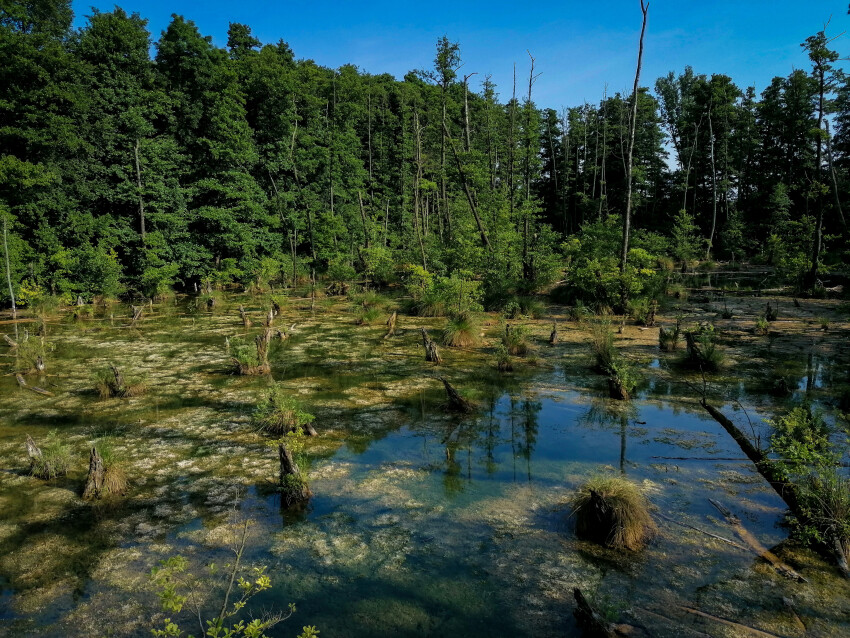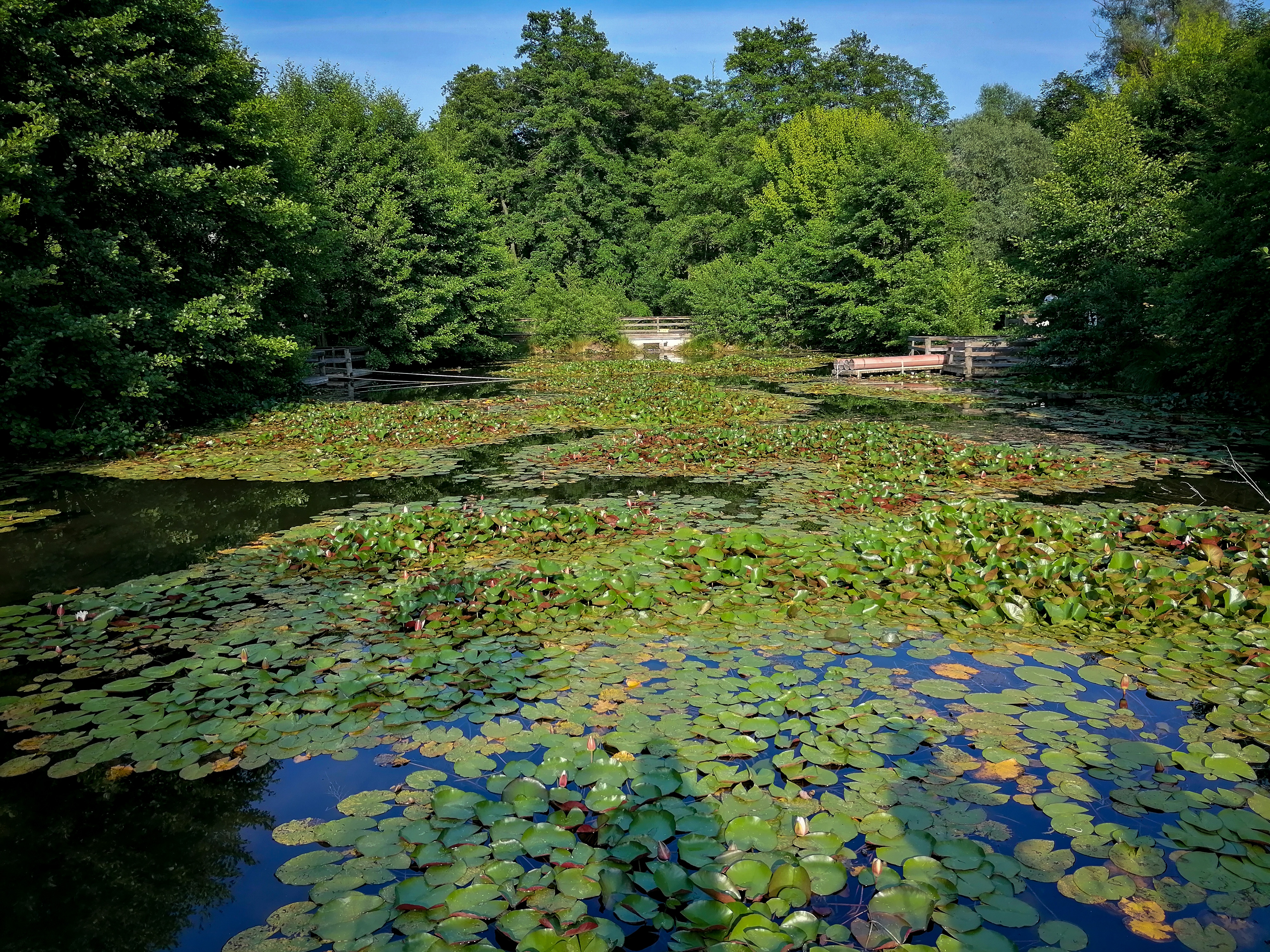International Stakeholders Meet in Tata to Discuss Policy and Action on Peatlands
The first workshop of the EUKI project “Building the European Peatlands Initiative: A Strong Alliance for Peatland Climate Protection in Europe” took place on 20 June 2023 in Tata, Hungary. Organised by project partner CEEweb for Biodiversity, the event was designed to bring together different stakeholders to share and discuss experiences on peatland protection, restoration and sustainable use.
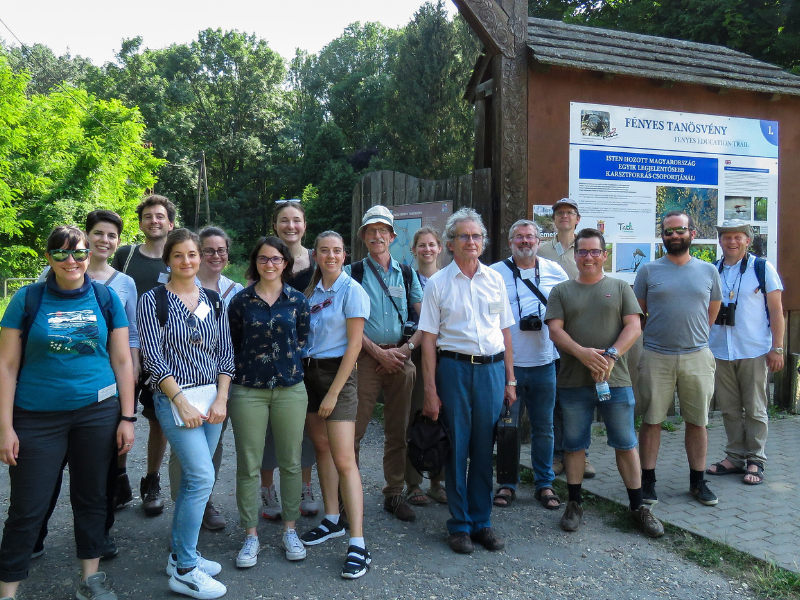
Peatlands have the potential to be our allies in both climate change mitigation and adaptation while providing multiple other essential ecosystem services, as well. The European Climate Initiative (EUKI)-supported project, as part of which CEEweb’s workshop was organised, aims to enhance these services and benefits through an improved pan-European collaboration for the conservation and restoration of peatlands. The workshop brought together policy experts, practitioners, civil society representatives and other interested stakeholders for a full-day opportunity to learn and build capacities on effective policy responses for healthy European peatlands.
The day began with a presentation on the EUKI Peatlands project itself, followed by presentations by experts on the condition of peatlands across Europe, as well as the challenges and opportunities of their management. A panel discussion and a small-group interactive session were meant to initiate a constructive discussion between attendees and experts. The event was closed with a field trip to an educational trail in the Fényes Springs of Tata, providing an overview of the unique biodiversity of peatlands and their current management.
The workshop was opened by Csaba Mezei, CEEweb’s General Secretary, who welcomed the participants on behalf of the organisers. József Michl, mayor of Tata, and Balázs Rigó, deputy mayor of Tata. Then welcomed the participants to the conference room of the ecotourism centre located directly on the shore of the Old Lake of Tata, giving a short history of the town and how the municipality takes pride in and action on its precious local wetland, also a Ramsar site.
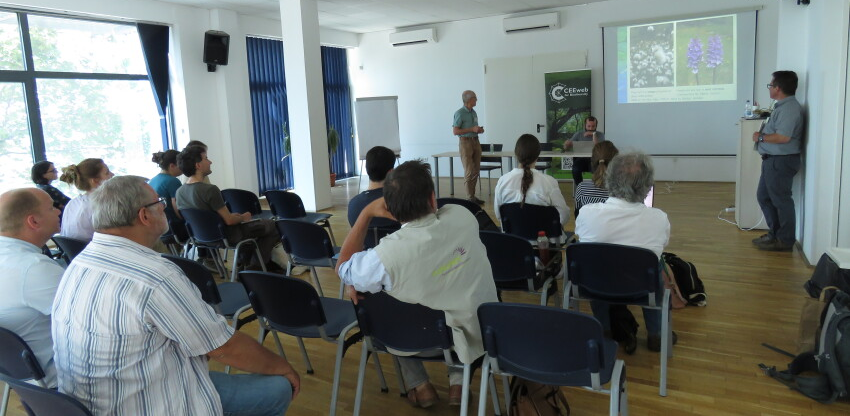
The EUKI Peatlands project was introduced by the Project Officer, Marina Škunca, on behalf of Eurosite – the European Land Conservation Network, lead partner of the project, highlighting the project’s main goals, target groups and partners. She provided details of the context and objectives of the project, emphasising the need for cooperation between national governments and other stakeholders to achieve a greater number of protected/restored peatlands in Europe. Orsolya Nyárai, Agricultural Policy Officer at CEEweb gave a presentation on the role of CEEweb in the project. We aim to support national peatland strategies by critically assessing them, collecting good practices and providing recommendations and guidance to national governments.
Dr László Jánossy, Biologist, Environmental Engineer presented the importance of peatlands and their conservation value while highlighting the effect of climate change on these sensitive ecosystems. He also introduced some preliminary results of the peatland policy assessment in selected Central and Eastern European countries by showing the strengths and weaknesses of peatland strategies and other relevant policies across this region.
Moritz Kaiser, Scientific Staff at the Michael Succow Foundation, Partner in the Greifswald Mire Centre, presented the distribution and state of peatlands globally with a focus on Central and Eastern European countries. The presentation covered the unequal distribution of peatlands, while it also highlighted the issue of greenhouse gas emissions as a result of drained peatlands in Europe. The lack of or outdated nature of data on the status and conditions of peatlands in Europe was pointed out as a regular weakness for effective peatland restoration.
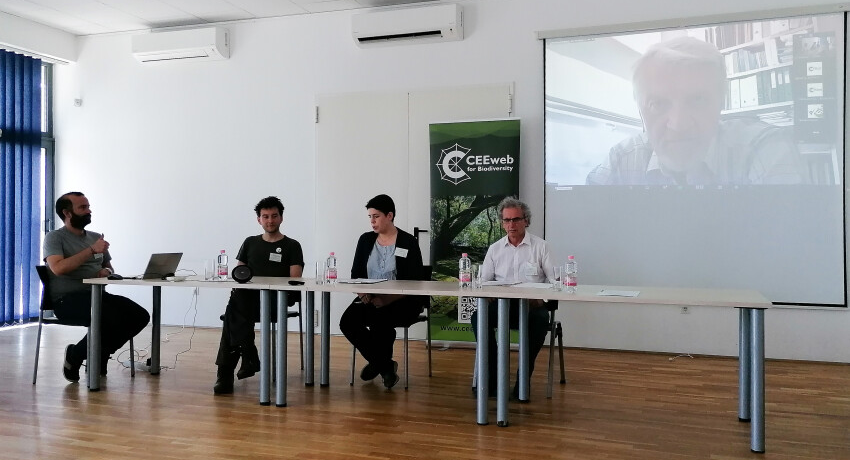
The individual presentations were followed by a Q&A session, enabling an inspiring discussion between attendees and experts, mainly covering the financing issues of peatland restoration and the interlinkages of the European Peatlands Initiative (EPI) and the EUKI Peatlands project.
In the afternoon, the presentations were focused on various aspects of peatland protection and management in Hungary and Estonia. Konrád Lájer, PhD, explained the state of Hungarian mires and emphasised that nowadays, almost all remaining mires are located in national parks. Mati Ilomets, Head of the Mires Research Group of Tallinn University presented the challenges and opportunities of sustainably managing peatlands in Estonia. With two-thirds of peatlands being degraded in some way, the country is currently working on restoring drained peatlands by creating dams and blocking drainage ditches in order to raise the water table in peatlands. He emphasised that long-term monitoring is needed for peatland restoration and that raising the water level is just the first step in restoring peatlands but is not sufficient alone.
Following the presentations, a panel discussion was facilitated by Orsolya Nyárai. Three peatland experts were involved: Konrád Lájer, Moritz Kaiser and Mati Ilomets. The discussion addressed several topics related to national peatland policies, specific areas in need of more research, the availability of peatland maps and data systems, as well as the challenges in the way of securing funding and effective policy implementation.
An interactive session followed on national peatland action and policy. Attendees engaged in small-group discussions, exchanging views and suggestions on the current challenges faced by their own countries’ peatland policies, and recommending potential actions to address them.
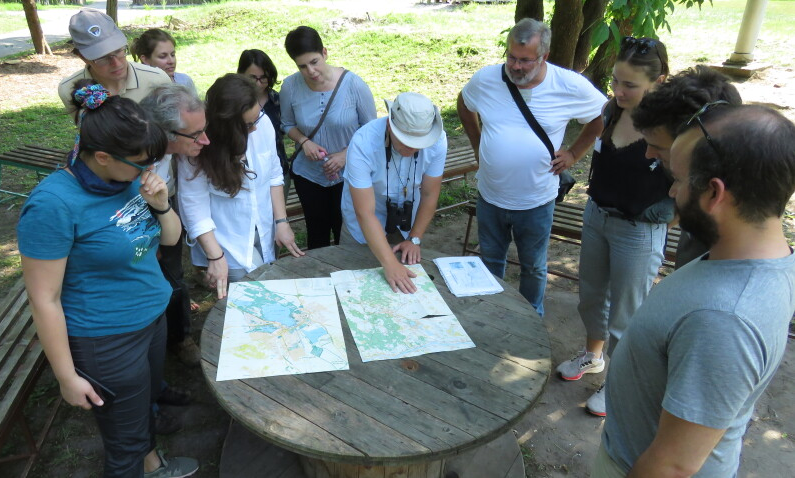
The second part of the afternoon was reserved for a field trip to the Tata Fényes Springs. First, Gábor Ballabás, PhD., geographer introduced the main characteristics of the site. He also highlighted the town’s geological history leading to the springs‘ emergence. The field trip was led by Ferenc Márkus, a conservation ecologist, and Gábor Ballabás.
The workshop proved useful in introducing the EUKI Peatlands project while gathering constructive feedback and input from the representatives of multiple stakeholder groups. The main takeaway message of the workshop was that cooperation between governments and stakeholders on peatland restoration needs to be improved across Europe as well as actions to update maps, and data and ensure long-term monitoring needs to be put in place for the successful protection and restoration of peatlands.
A webinar later this year will be organised by CEEweb in order to share the results and main findings of the assessment of Central and Eastern European peatland strategies. In 2024, a second multi-stakeholder workshop will follow, providing further opportunity and more targeted guidance to national stakeholders for improved peatland policies.
Impressions of Hungarian peatlands, find more on CEEweb for Biodiversity’s website.
